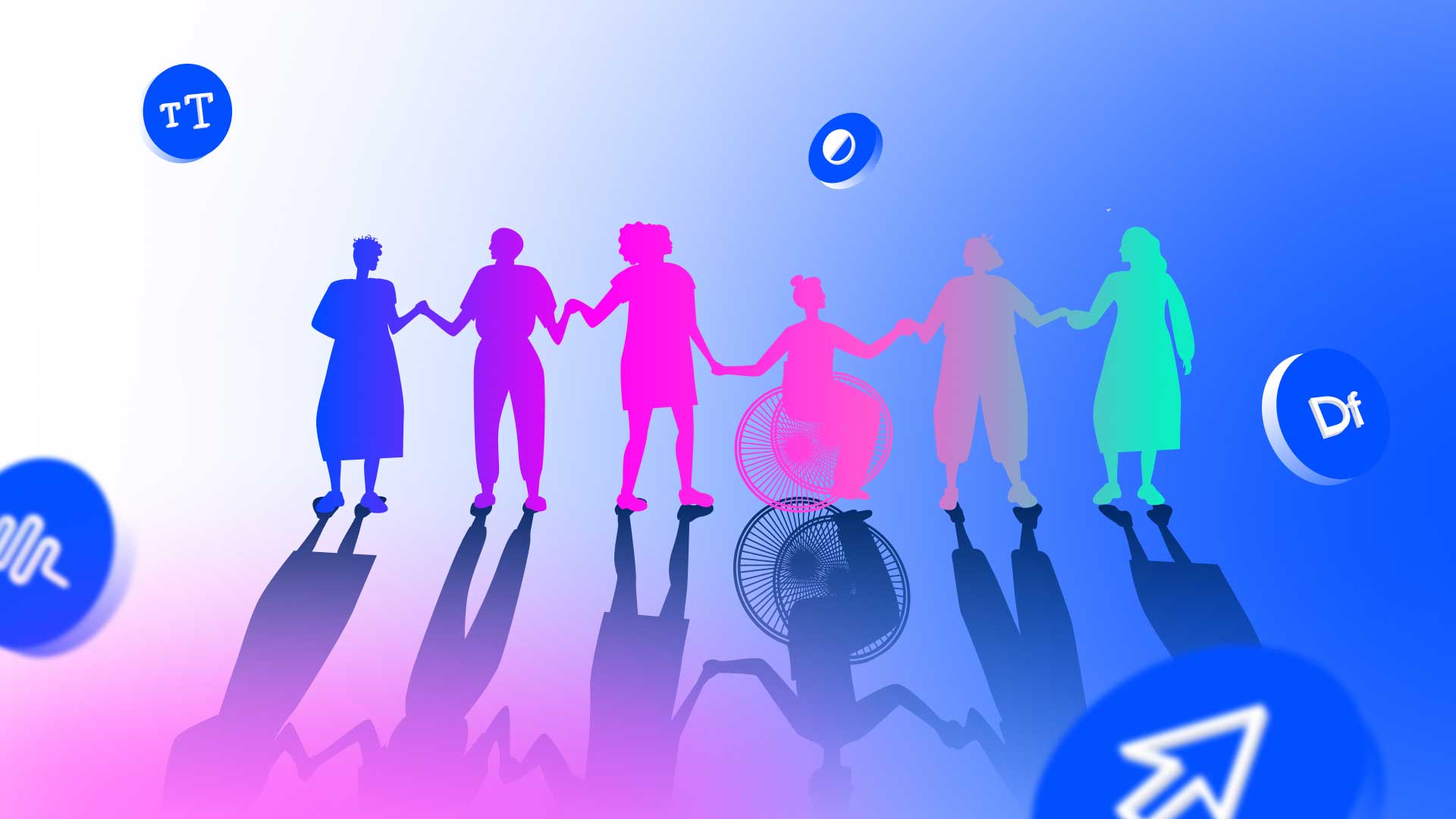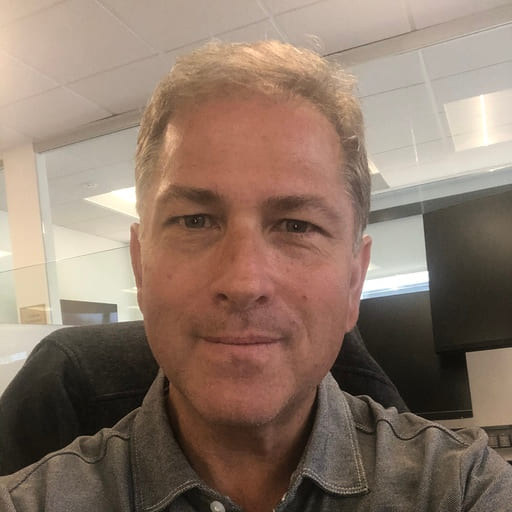Digital accessibility 2024: the roadmap to inclusion

The internet has changed everything in our lives, from the way we communicate to the way we work. Many of us can access online products and services regardless of device, geography, age, language, or abilities. The reality is, however, that not everyone has the same opportunity to experience the online world as they should, and, up until recently, digital accessibility has been an afterthought, largely due to a lack of awareness.
For example, when you look at a majority of website home pages (a million of them to be exact) almost 50 million accessibility errors are being detected that make them hard to use for some people. That equates to 50 mistakes on every page!
Fortunately, there is an increasing awareness regarding the importance of digital accessibility. Website developers, in particular, are realizing how important it is to make websites and apps easy for everyone to use, including individuals with disabilities. However, while it’s positive that there’s a push to do better, it’s very clear that there’s still a long way to go.
In this piece, we’ll explore the whys and the hows of exactly how you can make your online content universally accessible. We’ve gathered the most common questions asked by many of our customers who have already started on their journey towards digital accessibility. Let’s get started.
What is digital accessibility?
Digital accessibility is the practice of designing digital content and technologies in a way that they can be accessed, understood, and used by as many people as possible, including those with disabilities. It’s about removing barriers in the digital world, creating inclusive online spaces where everyone has equal access to information and digital resources.
When considering if a website, app or document is digitally accessible, here are some questions we need to consider:
- Can this content be easily read and navigated by a screen reader? This question addresses the needs of users who are blind or have severe visual impairments and rely on screen readers to interpret and navigate digital content.
- Have I incorporated features that accommodate color blindness and ensure sufficient color contrast? This question is essential to cater to users with color vision deficiencies, ensuring that information is not conveyed through color alone and that there is enough contrast between text and background colors for readability.
- Is all video and audio content captioned or transcribed? Captions and transcripts are vital for users who are deaf or hard of hearing, as well as for those who may not be able to use audio in certain environments.
- Does the interface allow for keyboard navigation, benefiting those who cannot use a mouse? This addresses the needs of users with motor disabilities who may rely on a keyboard or other assistive technologies instead of a mouse.
- Have I tested this content with users who have diverse abilities to ensure it’s genuinely accessible? This question emphasizes the importance of involving people with various disabilities in the testing process to identify and address accessibility issues effectively.
These questions encourage a mindset of inclusivity and help to create digital content that’s accessible to a broader audience, including those with disabilities.
Why is digital accessibility necessary?
Digital accessibility is an absolute necessity, especially when you think about the fact that people with disabilities represent 15% of the global population.
Many of us benefit from the ease of interacting online by simply clicking a few buttons to do things like shop, manage our bank accounts, research a hobby or interest, book a table at our favorite restaurant. The list goes on! Doing these tasks online is super convenient and has become a normal part of our daily lives.
But, for a huge section of the population, these simple, everyday tasks that many of us take for granted aren’t so straightforward. A lot of websites and apps just aren’t built with accessibility in mind. So, while many of us are breezing through these tasks, others are hitting frustrating roadblocks.
That’s where the heart of digital accessibility lies. When we think about the digital world, it’s supposed to be this great equalizer, a place where everyone, regardless of their abilities, can access information, services, and opportunities. But when digital accessibility is overlooked, it’s more than just an inconvenience; it becomes a barrier that infringes on a basic human right.
Bottom line, when we fail to make our digital spaces accessible to all, we’re not just overlooking a technical requirement; we’re obstructing a fundamental aspect of equality and inclusion.
So we’ve laid out some pretty compelling reasons why digital accessibility is necessary but here’s another big one: it’s not solely about doing the right thing – it’s the law!
Let’s learn more about digital accessibility laws.
What are digital accessibility laws?
Around the world, different countries have rolled out laws that mandate digital accessibility. Making sites and apps accessible isn’t optional, it’s a legal necessity. But how well do you know the laws and who do they apply to? Lets run through a few key digital accessibility laws:
Americans with Disabilities Act (ADA)
The Americans with Disabilities Act is a landmark U.S. civil rights law that extends beyond physical accessibility, encompassing digital spaces as well. It requires businesses and public entities to ensure their online platforms, like websites and apps, are accessible to all individuals, including those with disabilities. This law emphasizes the need for inclusivity in the digital world, not just in physical spaces.
Section 508
Section 508 is a key piece of U.S. legislation that mandates all technology and electronic content purchased by the government to be accessible to people with disabilities. This law ensures that websites, software, and other tech products used by federal agencies are designed so everyone, including those with disabilities, can use them effectively.
EN 301 549
This European standard is a comprehensive set of guidelines for digital accessibility. EN 301 549 stipulates that all technology, including digital products and services, must be accessible to people with disabilities. It serves as a framework for ensuring that websites, apps, and other digital tools are usable by everyone across Europe, focusing on inclusivity and equal access in the digital landscape.
The European Accessibility Act (EAA)
The EAA is a significant EU legislation aimed at eliminating accessibility barriers in the internal market for various goods and services. This directive establishes EU-wide minimum accessibility requirements, focusing on making products and services more accessible to persons with disabilities. Unlike the Web Accessibility Directive, which targets public sector websites and apps, the EAA extends to the private sector, covering a broader range of products and services. Enacted on June 27, 2019, the EAA complements other EU accessibility legislations, including the Web Accessibility Directive, thereby broadening the scope of accessibility and inclusion within the EU.
These are merely a handful of instances; numerous digital accessibility regulations exist, and given the constantly evolving nature of this field, we advise delving deeper to make sure your digital assets are in compliance with the applicable laws.
What do I need to know about digital accessibility standards?
In some cases, digital accessibility laws and standards can get confused. Digital accessibility standards and laws in the context of digital accessibility serve different but complementary roles. Let’s simplify the differences:
Standards: These are guidelines or sets of best practices developed by experts in the field. They outline how to make digital content accessible, providing specific technical criteria and methods.
WCAG, or the Web Content Accessibility Guidelines, are internationally recognized standards that set the benchmark for making websites accessible to everyone, including those with disabilities. They’re like a blueprint for web developers, outlining how to create websites that are user-friendly for a diverse audience from the start.
While WCAG isn’t explicitly mentioned in U.S. law and is not legally binding like the ADA, it’s hugely influential. In fact, it’s often used as a reference point in legal cases regarding website accessibility. The WCAG 2.1 AA standards, in particular, are frequently cited as a model for businesses to follow to ensure their digital services are up to par. So, although it might not be in the law books, WCAG plays a vital role in shaping accessible digital spaces.
Laws: On the other hand, laws such as those mentioned above, are legal requirements mandated by governments. They have legal authority and can mandate organizations to meet certain accessibility criteria. Laws like the ADA in the U.S. or the Equality Act in the UK can include references to standards as part of their requirements, but they carry the weight of law. This means if an organization fails to comply, they could face legal consequences.
While standards provide the ‘how-to’ details for accessibility, laws mandate the ‘must-do’ aspect of it, often under the threat of legal action.
What are examples of digital accessibility?
Are you ready to transform your digital experience and make it more inclusive for everyone? While we’ve touched upon a handful of digital accessibility examples, brace yourself for these insights to boost your user’s online experience:
Have you provided text alternatives?
Imagine you couldn’t see the images or videos on a website. How would you understand the content? That’s why providing text descriptions for non-text content is essential. It ensures that people with visual impairments can access your content through screen readers.
Are you including captions for multimedia?
Have you ever watched a video on mute or struggled to hear the dialogue? Captions benefit not only those with hearing impairments but also anyone who prefers to watch videos in silence.
Is the text resizable?
Think about your grandparents, or even yourself as you age—sometimes, we all need larger text. By allowing users to resize the font without causing text to become unreadable, you’re making your content accessible to people with varying visual abilities.
Are your forms accessible?
Make sure that your online forms and input fields are labeled correctly, offer clear instructions, and are navigable using keyboard commands benefits users with disabilities who rely on assistive technologies for data input.
Have you considered keyboard navigation?
Have you ever considered how people with motor disabilities browse the web? Keyboard navigation ensures that everyone, including those who can’t use a mouse, can easily access your website’s features.
Have you checked your color contrast?
Imagine reading text on a bright yellow background. It isn’t easy. High color contrast between text and its background makes reading a breeze for people with visual impairments.
Is your site compatible with assistive technologies?
Ever wondered how technology can empower those with disabilities? Your website or app should seamlessly work with assistive tools like screen readers, magnifiers, or voice recognition software to empower a wider audience.
So, what’s the takeaway? Digital accessibility is as much about catering to people with disabilities as it is about making your online presence inclusive for everyone.
By implementing these simple yet powerful tips, you’re improving your users’ experience while making your digital assets accessible to all.
UserWay: helping you win at digital accessibility
Ready to navigate the world of digital accessibility tools and services? This is where UserWay, one of Gartner’s top tech vendors in digital accessibility, steps in.
With cutting-edge AI solutions like the Accessibility Widget, our goal is to provide comprehensive guidance to help you craft digital experiences that are barrier-free. Our helps you in not only meeting but exceeding accessibility standards, so that all users, regardless of their abilities, can fully engage with your digital content.
You can also benefit from a range of services including remediation of your accessibility errors, attorney-legal support, a monetary Pledge (should you find yourself facing accessibility-related legal issues) and dedicated support from a highly seasoned accessibility team.
Request a demo today and let’s get started in making your digital spaces welcoming for all of your users.
Answers to Common FAQs
What does it mean to be digitally accessible?
Being digitally accessible means ensuring that websites, apps, and online content are designed and structured so that people with disabilities can use them effectively and independently.
Is meeting digital accessibility standards required by law?
Yes, for instance, the ADA mandates digital accessibility, and while WCAG isn’t law, it’s globally recognized as the gold standard.
Do digital accessibility standards change?
Absolutely. As technology advances, digital accessibility standards and legal requirements adapt to ensure continuous inclusion for all users.




Share